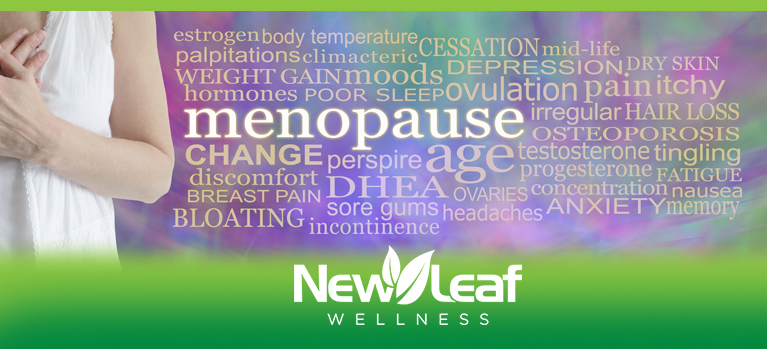WHAT ARE ULTRA-PROCESSED FOODS?
Many people suggest we avoid ultra-processed food and choose whole foods instead. What are ultra-processed foods? According to Harvard Health, food processing often involves adding ingredients like sugar, salt, fat, artificial colors, preservatives, flavors, and/or stabilizers, so these processed products are “made mostly from substances extracted from foods, such as fats, starches, added sugars, and hydrogenated fats.” In other words, it feels like a bit of a stretch to call them food in the first place.
AMERICAN DIET
Unfortunately, the typical American diet (and grocery store) is chock-full of these products, from cookies and crackers to frozen meals and sugar-packed sodas.
One 2022 report noted that a whopping 73% of the U.S. food supply can be considered ultra-processed—partially because these “Frankenfoods” are much more profitable for manufacturers, costing on average 52% less than minimally processed options. However, for the humans consuming them, they have many impacts that are far from positive—in fact, they’re downright health-destroying. Let’s look at just some of the ways in which they harm the entire human body, over both the short and long term.
EATING HIGHLY PROCESS FOODS CAN BE ADDICTIVE
One study, published in late 2022 in the journal Addiction, evaluated these foods according to the criteria established when researchers examined the impacts of tobacco in the 1980s. The findings noted that these addictive hallmarks include:
- Loss of control over intake, such as seen with compulsive or binge eating
- Intense cravings, or strong urges that are difficult to resist
- Inability to reduce consumption—for example, eating even when not hungry
- Continued use despite negative consequences, including serious health concerns like obesity
The study estimated that roughly 14% of adults and 12% of children exhibit signs of food addiction.
EATING HIGHLY PROCESS FOODS MAY INCREASE THE RISK FOR COGNITIVE DECLINE
We already know that high-glycemic, low-fiber foods and other nutritionally empty culprits, are potential memory destroyers. More specifically, a study presented at the 2022 Alzheimer’s Association International Conference, published in JAMA Neurology and reported by CNN, stated that consuming more than 20% of the daily calorie intake (that is, 400 calories of a 2,000-calorie diet) via ultra-processed foods may increase the risk for cognitive decline. This decline occurred at a rate of 28% faster among men and women who consumed large amounts of these foods, and they also experienced a 25% faster decline in executive function. Unfortunately, many Americans consume far more than 20% of their daily calories in ultra-processed foods, with one 2017 study reporting that number at 57.5% among its survey participants.
HIGHLY PROCESSED FOODS BOOST THE ODDS OF EXPERIENCING MENTAL HEALTH ISSUES
A 2022 review of 17 studies researched the links between processed foods and mental health disorders. The findings stated that “greater ultra-processed food consumption was cross-sectionally associated with increased odds of depressive and anxiety symptoms” and “was associated with increased risk of subsequent depression.” Correspondingly, another study from 2020 found that participants whose ultra-processed food intake made up more than 73% of their total energy intake had a 35% higher risk of depressive symptoms, compared with those who consumed 34% or less of their total calories from ultra-processed foods. Clearly, there is a reason why the Standard American Diet spells SAD!
EATING ULTRA-PROCESSED FOODS HAS BEEN LINKED TO INCREASED PHYSICAL HEALTH RISKS
In 2019, two large European studies were published in The BMJ. These studies established a positive association between eating highly processed foods and the risk of cardiovascular disease and even death. The first study, from NutriNet-Santé, surveyed 105,159 French adults (79% of whom were female, with an average age of 43 years). The conclusion was that a “10% increase in the proportion of ultra-processed food in the diet was associated with significantly higher rates of cardiovascular disease, coronary heart disease, and cerebrovascular disease (an increase of 12%, 13%, and 11%, respectively).” Meanwhile, a diet higher in unprocessed or minimally processed foods is correlated with a lower risk of all these health issues.
The second study investigated the link between eating ultra-processed foods and the risk of death from any cause. Like the first study, it surveyed participants over 10 years. The BMJ results demonstrated that “higher consumption of ultra-processed foods (more than 4 servings per day) was associated with a 62% increased risk of all-cause mortality compared with lower consumption (less than 2 servings per day). Each additional daily serving of ultra-processed food is correlated with an 18% relative mortality risk increase. These two studies point to possible links between Frankenfoods and poorer quality of life. More research is needed to establish cause and effect.
WHICH ULTRA-PROCESSED FOODS ARE THE WORST?
Though eating anything that fits into the ultra-processed or highly processed categories interferes with optimal full-body health, researchers have hypothesized that certain foods are more likely to trigger addictive-like behaviors. For example, a pair of studies from 2015 compared the making of these toxic food products to the processing that transforms a coca leaf into cocaine—in other words, both have been altered to speed up absorption into the bloodstream.
Ultra-processed foods have large glycemic loads. Glycemic load relates to the food’s dosage of refined carbohydrates and the resulting blood sugar spike. A 2018 study noted that carbs with a high glycemic index “elicit a rapid shift in blood glucose and insulin levels, akin to the pharmacokinetics of addictive substances.” Like with other commonly abused drugs, glucose and insulin levels influence dopamine concentration, so sugar creates cravings and addiction. Accordingly, the these studies referenced above pointed to high-glycemic-load foods as the worst offenders.
15 ULTRA-PROCESSED FOODS TO AVOID
Some of the worse ultra-processed foods that you should nix from your diet include the following 15 nutritional disasters:
- Processed meats (sausages, hot dogs, and deli meats)
- Sugary breakfast cereals
- Sodas and energy drinks
- Frozen pizzas
- Mashed potato flakes
- Packaged cookies
- Blended coffee drinks and flavored creamers
- French fries
- Pretzels
- Baked goods
- Candy
- Instant noodles
- Flavored chips and cheese puffs
- Processed cheese sticks
- Barbecue sauce
FINDING THE BEST OPTIONS AMONG PROCESSED FOODS
Researchers at Northeastern University have created an online tool that rates foods. This online tool rates foods within the same product category on a scale from 1-100 from least processed to ultra-processed. For example, in the “Spread & Squeeze” category, Whole Foods’ 365 brand almond butter scores 5/100 while the same brand of “Cookie Butter” spread is rated at 77/100. This tool can help us make better food choices.
Whole foods, of course, may contain sugar (like you’d find in fruit). Whole foods also contain fiber, protein, and water, making it slower to hit the bloodstream and do not cause that same feeling of a sugar rush. Stick to unprocessed or minimally processed foods in the produce section, such as nuts or legumes. Unprocessed foods promote maximum health and longevity over the long haul.
Finally, for more help in taking control of your health, New Leaf Wellness has a dedicated Wellness Coach. Join wherever you are via Zoom & save yourself from High Healthcare costs. Sign up for our online or in-person consultation services and receive personal attention! FREE 20-minute First session!
WELLNESS COACHING CAN HELP WITH:
- Weight loss
- Stress reduction
- The management of chronic conditions
- Improving diet and exercise
- Preventive care and wellness
- Illnesses and injuries prevention education
- Disease management
- Multi-cultural Workplace Wellness
- And so much more!
Are you tired…feeling sluggish? Has your get up and GO …. GONE?
Contact New Leaf Wellness and schedule a FREE 20-minute session with a Wellness Coach by emailing healthcoach@newleafcenters.com.















